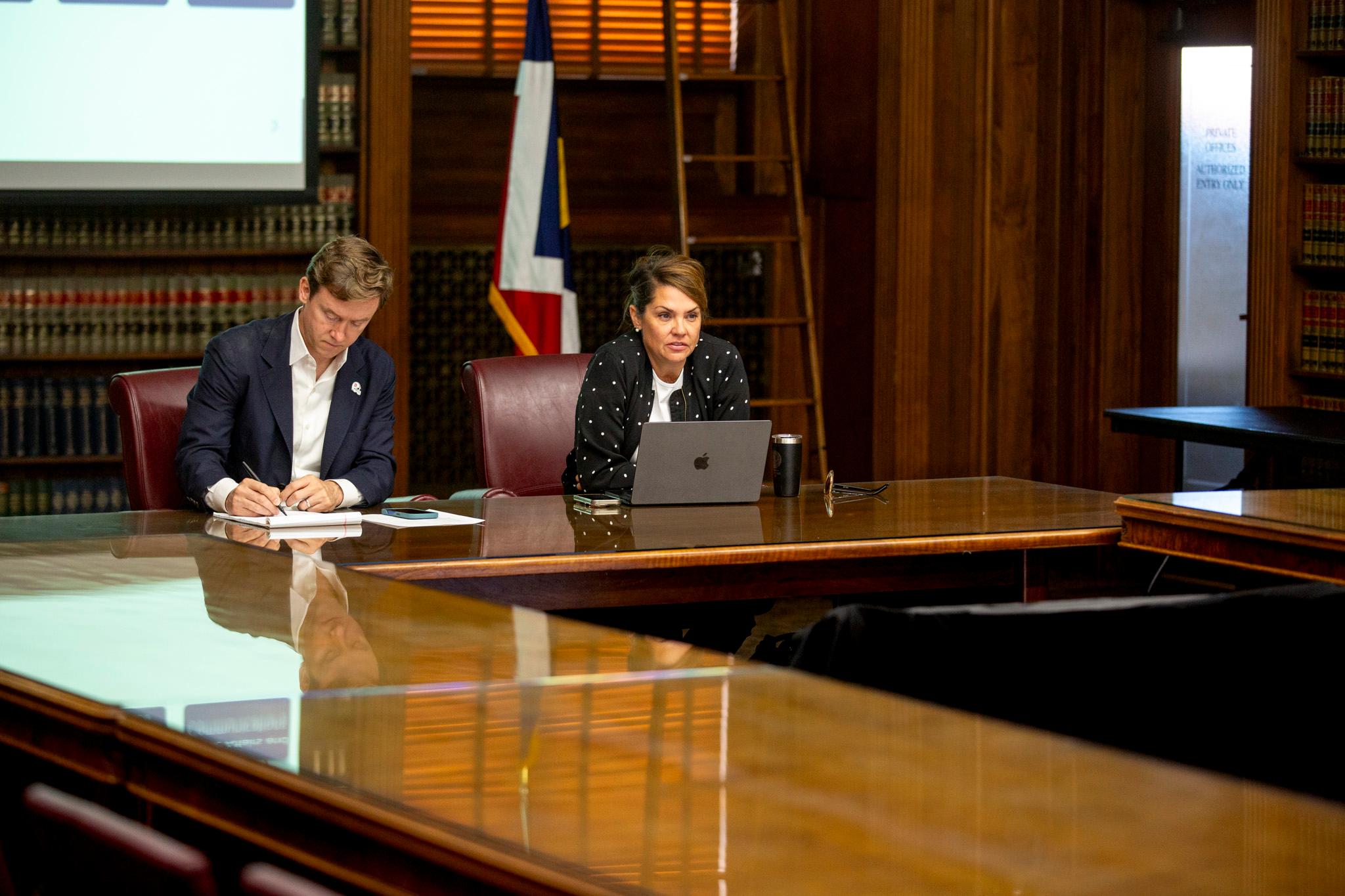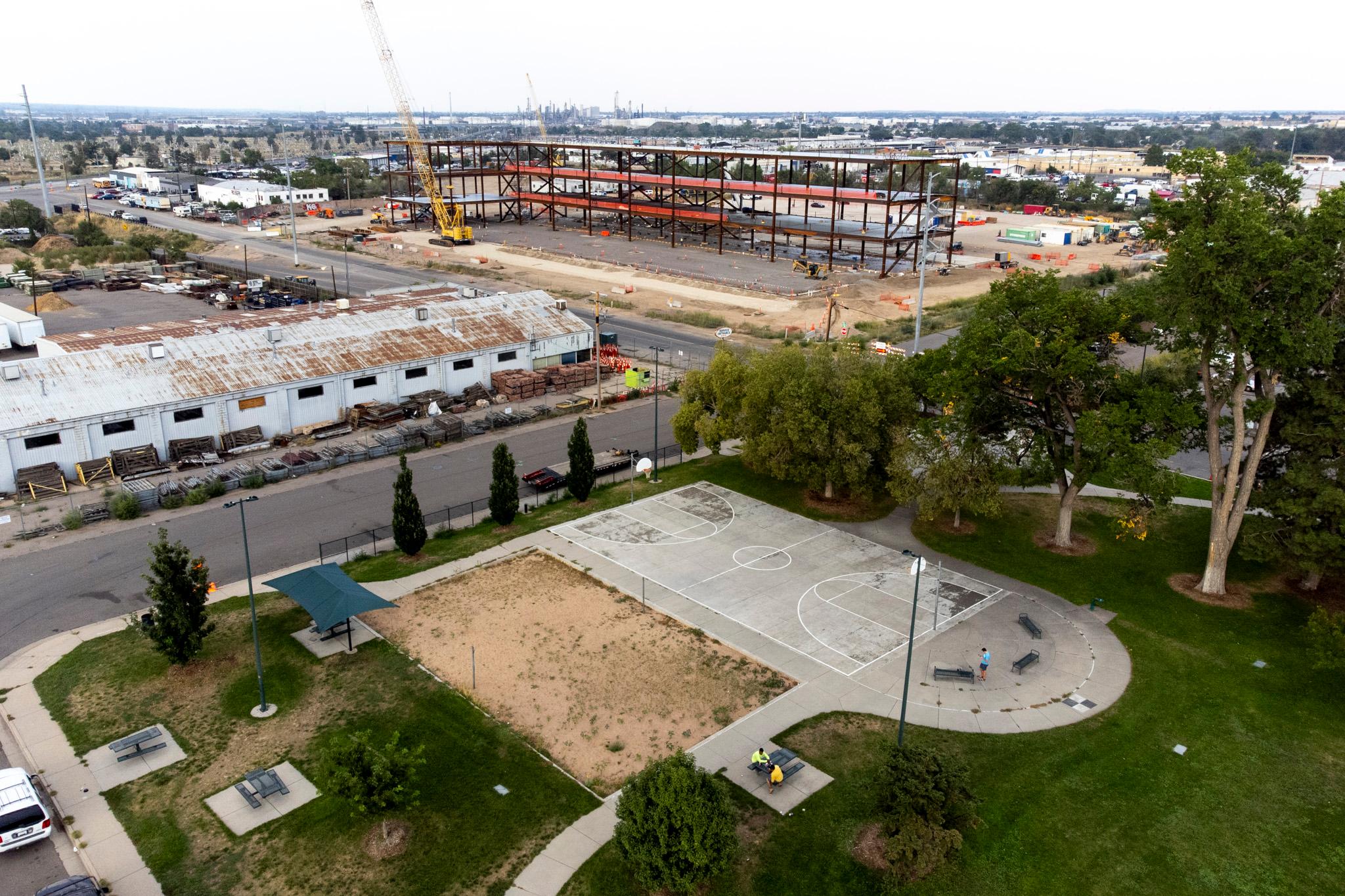Updated at 9:25 a.m. on Tuesday, Oct. 21, 2025
Denver Mayor Mike Johnston has agreed to increase funding for elections, eviction assistance, an appeals system for parking tickets and more — but he stopped far short of matching all the budget requests of other city leaders.
Johnston responded on Monday to 16 budget amendments proposed by the Denver City Council. The council’s requests would have added $18.7 million to Johnston’s $1.66 billion budget proposal.
Johnston had previously warned that the budget had been cut “to the bone” and that any additions would require reductions, too. His tune changed slightly as he considered the council's amendments.
“In all, despite limited resources, we are able to address 11 of the Council’s 16 proposed additions without disproportionally impacting departments or agencies, for a total value of $11.3 million out of the $18.7 million requested,” he wrote the council.
To pay for the additions to his budget, the mayor would tap into an additional $4 million from interest collected on federal American Rescue Plan Act pandemic funding. He also said he found creative ways to address other issues.
Johnston generally stopped short of the council’s full funding requests.
For example, Denver Clerk and Recorder Paul López has requested an additional $4.5 million in funding his office says it needs to run the 2026 midterm elections. Instead, Johnston added $800,000 for postage, paper and printing costs.
One of Johnston’s changes was on emergency rental and utility assistance. He increased funding from $12.2 million to $15 million. That’s still short of the amount that the city provided in previous years, but administration officials say the loss of federal funding has forced cuts, even amid record eviction cases.
Denver County Court previously cut parking magistrates and shut down an online ticket appeals system. The council asked for those positions to be restored.
Instead, Johnston is ordering the Department of Transportation and Infrastructure to create a new “administrative parking ticket appeal program” that does not involve the courts. The program, costing $575,000, will be funded by parking meters and parking fines.
The mayor will fund new immigrant legal services with an additional $125,000 – to bring the total to $750,000. He also allocated $50,000 to pay for a Denver Food System Summit.
The Auditor’s Office will receive an additional $120,000, compared to a $499,000 additional request.
The mayor also said the city would fill crime lab positions for the Denver Police Department; increase funding for Safe Routes to School; and hire a new full-time employee for the Denver Anti-Discrimination Program.
Which items will not be addressed in Johnston’s proposal?
The nationally recognized Support Team Assisted Response (STAR) program, which cuts back on armed police response to emergency calls, would not receive an additional $500,000 that was requested.
“The alignment to the STAR budget in 2026 was arrived at based on actual 2025 spending, which is on track to be at least $500,000 less than what was budgeted for the program in 2025,” Johnston wrote.
The program, which only operates for part of the day, cannot be expanded this year, he wrote: “This STAR funding could be restored if Council is willing to consider the 5% budget reduction we recommended for independent agencies in 2026.”
WorkReady, a program that trained new immigrants in professional skills while they waited for work authorization, will still be eliminated, though broader workforce training is included in the budget.
Johnston also declined to restore 17 previously vacant right-of-way enforcement positions. To do so, DOTI would need to cut another 17 workers, he said. And the program already has 40 people assigned to managing streets, alleys, bike lanes and utilities.
The mayor also will not provide funding for three crisis response team positions in the Denver Sheriff Department.
“Safely managing individuals in mental health crises in custody is a priority and was an important value as the Denver Sheriff Department made difficult choices during this budget process,” Johnston wrote. “All deputies are trained on crisis intervention training and mental health first aid, and there are six filled positions who provide core mental health services in our jails.”
The budget fight is not over.
City Council members will be mulling over his response to their amendments in the days to come.
The public may comment on the latest edition of the budget until Oct. 27 through writing or in a public hearing.
Council can propose and vote on more amendments again on Nov. 3, and the mayor must respond by Nov. 7, either accepting or rejecting those items.
If he rejects them, City Council can override mayoral vetoes on Nov. 9 – but they need a supermajority of 9 members to do so.
Even if the council declines to pass the budget, the proposed budget, as amended, will become official.
Editor's note: This story was updated to correct the amount the mayor originally allocated to temporary rental and utility assistance.












